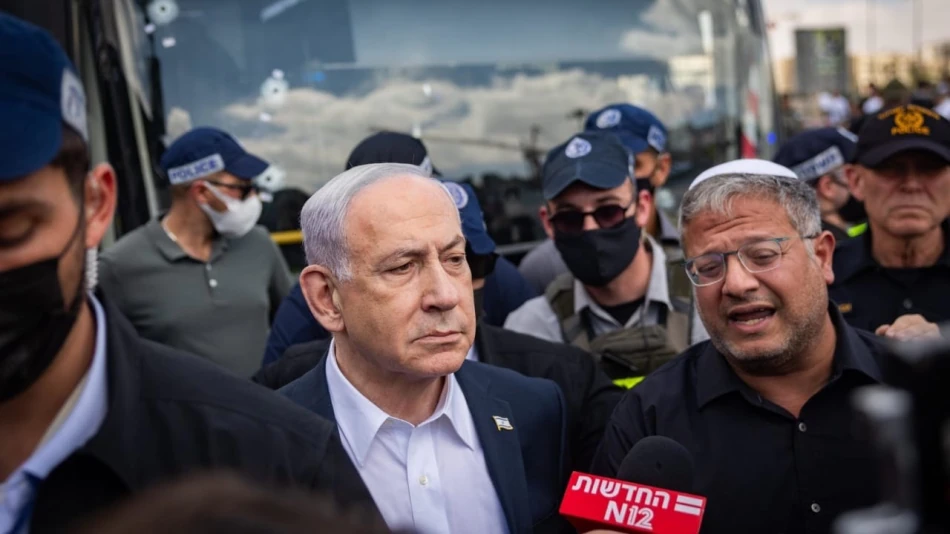
Netanyahu Urges Gaza Residents to Evacuate Immediately: Heightened Tensions Call for Decisive Action
Netanyahu Issues Evacuation Warning as Israel Prepares Major Ground Operation in Gaza
Israeli Prime Minister Benjamin Netanyahu has called on Gaza residents to evacuate the city, describing recent military strikes as merely a "prelude" to an intensive ground operation. Speaking from an air force operations room, Netanyahu warned that Israel's current campaign—which has destroyed 50 buildings in two days—represents only the beginning of a larger military escalation that could reshape the conflict dynamics in the region.
Escalation Signals Major Strategic Shift
Netanyahu's public warning marks a significant escalation in Israel's military posture, moving beyond targeted airstrikes toward what appears to be preparation for urban warfare. The Prime Minister's direct address to Gaza civilians—urging them to "get out of there"—suggests Israel is preparing for operations that could cause widespread displacement and civilian casualties.
The timing and tone of Netanyahu's statement indicate a departure from previous limited-scope operations. By publicly announcing ground force preparations and calling for civilian evacuation, Israel appears to be signaling its intent for a prolonged military campaign rather than the brief, targeted strikes that have characterized recent conflicts.
Regional Implications and International Response
Humanitarian Concerns Mount
The call for civilian evacuation from Gaza—a territory with limited exit points and restricted movement—raises immediate humanitarian questions. With approximately 2.3 million residents in the Gaza Strip, any large-scale evacuation would create a significant refugee crisis that neighboring countries and international organizations would struggle to manage.
Historical precedents suggest that such evacuation calls often precede intensive military operations designed to minimize civilian casualties while maximizing operational freedom for ground forces. However, Gaza's unique geographic constraints make civilian evacuation particularly challenging compared to other conflict zones.
West Bank Operations Expand
Netanyahu also confirmed operations against what he termed "terrorist strongholds" in three West Bank refugee camps, with plans to target additional locations. This dual-front approach—combining Gaza operations with West Bank raids—represents a broader strategic campaign that could destabilize the entire Palestinian territories.
The expansion into West Bank refugee camps suggests Israel views the current conflict as requiring comprehensive action across all Palestinian territories, rather than limiting responses to Gaza-based threats.
Strategic and Economic Implications
This escalation carries significant implications for regional stability and global markets. Energy markets typically react to Middle East tensions, and a prolonged ground operation could affect oil prices and regional trade routes. Additionally, the scale of military operations Netanyahu describes would require substantial resources and international diplomatic management.
The announcement also signals to regional powers—particularly Iran and its proxies—that Israel is prepared for extended military engagement rather than seeking quick de-escalation. This could prompt responses from other regional actors and potentially expand the conflict beyond Palestinian territories.
For international observers, Netanyahu's public warning represents a critical juncture that will test diplomatic efforts to prevent large-scale civilian casualties while addressing legitimate security concerns. The coming days will likely determine whether this escalation leads to broader regional conflict or creates pressure for negotiated solutions.
Most Viewed News

 Sara Khaled
Sara Khaled






